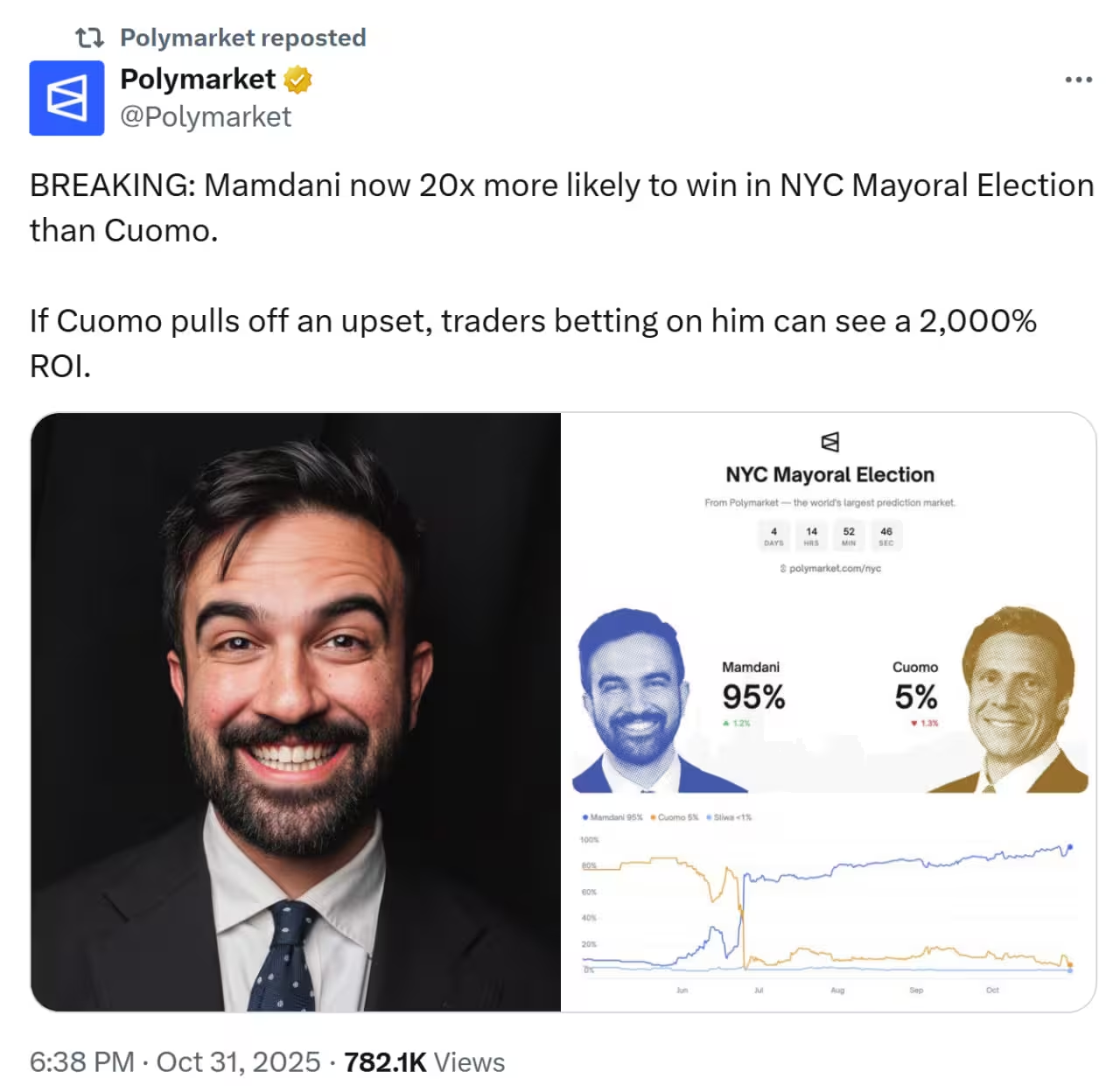3 Minutes
Romania blacklists Polymarket amid surge in crypto betting
Romania's National Office for Gambling (ONJN) has placed prediction market Polymarket on a national blacklist, declaring the platform an unlicensed gambling operator after a reported surge in crypto-based wagers tied to the country's recent presidential and local elections. Romanian regulators say Polymarket's trading volume tied to election outcomes exceeded $600 million, prompting legal action and the requirement for internet providers to block access.
Polymarket positions itself as an "event trading" or prediction-market platform, but ONJN says its model—where users bet money against each other on future events and the platform collects fees—meets the legal definition of gambling regardless of payment method, including crypto.

Polymarket users bet on NYC Mayoral Election
Why regulators say Polymarket violated gambling laws
Legal classification and enforcement
ONJN classifies Polymarket's activity as "counterpart betting," which falls squarely under Romania's gambling legislation. The regulator emphasized that the distinction between fiat and cryptocurrency does not change the legal status: betting in lei or crypto still requires licensing and oversight.
Key compliance failures cited
Authorities pointed to several compliance gaps: insufficient fiscal reporting, the absence of mandatory player protection mechanisms, and inadequate Anti-Money Laundering (AML) controls. ONJN's leadership stressed the decision is based on law and consumer protection, not on the underlying blockchain technology.
How this fits into global regulatory pressure
The Romanian action mirrors measures taken by other regulators worldwide. Polymarket has already faced enforcement in the United States, where the Commodity Futures Trading Commission (CFTC) fined the platform in 2022 for operating unregistered derivatives markets and required blocking U.S. customers. Other jurisdictions—including Belgium, France, Poland, Singapore and Thailand—have imposed restrictions or access blocks citing unlicensed gambling activity.
Despite challenges, Polymarket has continued to attract attention and capital, including a reported $2 billion investment from Intercontinental Exchange, the parent company of the New York Stock Exchange. That growth has put prediction markets back into the spotlight as regulators scrutinize how decentralized finance and crypto-native platforms intersect with gambling, derivatives and consumer-protection laws.
Polymarket's path forward and US relaunch plans
Polymarket is reportedly preparing a limited comeback in the U.S., prioritizing sports-related markets and leveraging a recent no-action letter granted to a crypto derivatives exchange that the platform acquired. The firm aims to relaunch restricted trading for U.S. users ahead of upcoming sports seasons, but international expansions will remain contingent on meeting local licensing, AML and player-protection standards.
For crypto traders, blockchain companies and regulators, the Romanian blacklist underscores an ongoing global debate: how to balance innovation in prediction markets with legal frameworks for gambling, derivatives, taxation and financial crime prevention.
Source: cointelegraph


Leave a Comment